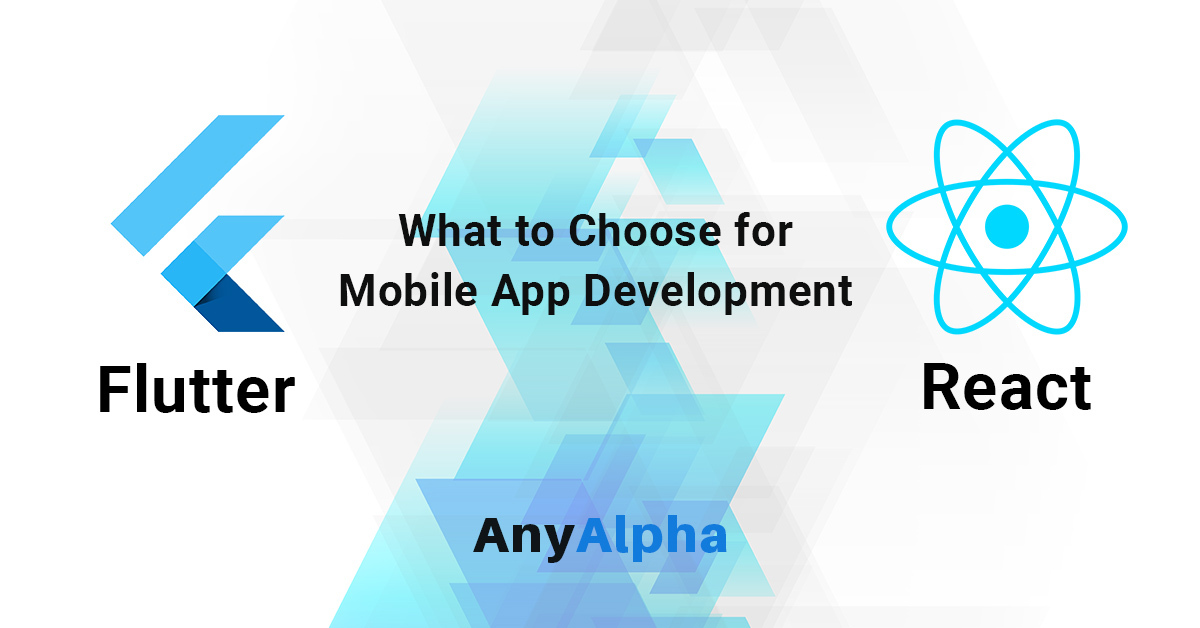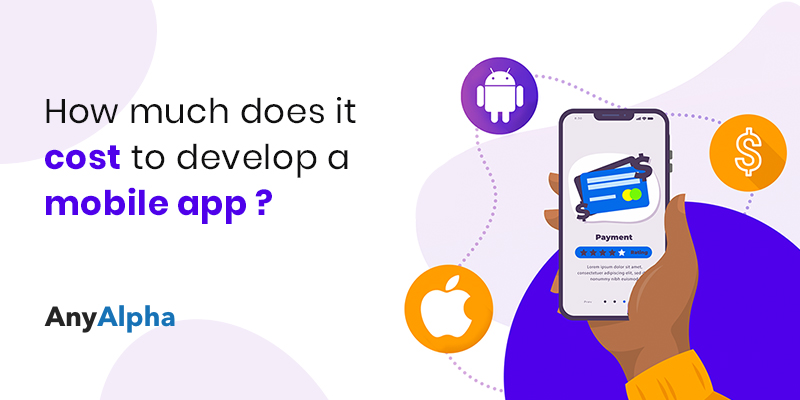You want to develop a mobile app for your business, but which technology stack should you opt for? This is a concern every app developer face as they begin planning. Flutter, created by Google and React Native, created by Facebook are two of the most popular cross-platform mobile app development tools. They have been creating a buzz in the industry for quite some time now. In this Flutter vs React Native comparison, we are going to help you decide what to choose for mobile app development.
Flutter vs React Native
Flutter was made by Google in February 2018. Flutter remains a fledgeling web app development service and has helped create apps like the Xianyu app by Alibaba, Google Ads app, Reflecty, and many more.
React Native was created by Facebook in 2013, as an internal project in Facebook Hackathon. It has come a long way since then. Some of the popular apps that have been made with React Native are Instagram, Facebook app, Pinterest, Skype app, Tesla, and more.
While both of the platforms are popular frameworks in their field, they are much different in the way they function and develop apps. Our comparison is based on the following criteria:
- Programming language
- Installation
- User Interface
- Architecture
- Development tools
- Developer’s Productivity
- Community Support
Without further ado, let’s see what separates the platforms.
Programming language
The key benefit of a cross-platform app is that you can use a single programming language to develop apps for both Android and iOS. React Native uses JavaScript while Flutter uses Dart, a programming language developed by Google.
If you hire a React Native developer, they can work with ReactJS, the JavaScript library that the platform provides to help build a smooth user interface. For web app development service, working with React Native is easier because of the familiarity with the programming language. As a matter of fact, JavaScript has been the most popular programming language for eight years now, closely followed by HTML/CSS.
As for Flutter, its programming language Dart is extremely client-friendly and resembled OOP languages like C++ and Java. So if you are familiar with either of those, working with Dart should be no problem for you.
Installation
In order to install Flutter, you will need to download the binary for the particular mobile platform and add it to your PATH variable. This can be done through the use of a command-line as well, making the process much easier for you.
On the other hand, installing the platforms are rather simple. React Native needs you to install its CLI globally by using a command line. Along with it, you will need to have Yarn and NodeJS as part of the package.
User Interface
We love the user interface in Flutter as it offers UI widgets packed into the platform itself, making the development of native applications much easier and faster. Whether you are looking to hire android developers or iOS, with Flutter, your team will need not go through a third party library. The platform itself has a huge one. Moreover, apps created using this service will remain consistent across various platforms.
On the other hand, look at React Native, we are grateful for the JavaScript bridge it offers, allowing developers to create seamless Android and iOS applications. The web app development service offers readymade elements that you can use as building blocks for your mobile app, and that’s what wins it additional points. But as with any tools, React Native comes with setbacks. The components of React Native have proven to react differently on different platforms. It lacks the consistency that is otherwise available in Flutter.
Architecture
Looking at the architecture of the platforms, we have seen that Flutter doesn’t need a bridge in order to communicate with the components within the tool. Everything that you might need to develop an app is available within the service itself, including the framework, and design materials, so you don’t need much help from a third-party tool.
React native, in contrast, helps developers communicate between JavaScript and its native language by using the JavaScript bridge. The bridge sends JSON messages from both ends. While the user interface is supposed to be smooth, there is a possibility that developers may experience lagging along the way. Bridging impacts speed.
Development tools
Flutter has an advanced documentation system, offering developers with in-depth guidelines along with video tutorials and graphics. Not only that but Flutter also has assistant tools that will walk you through app development. You can use cool features like Flutter Inspector and Debugger available within this web app development service.
React Native, however, focuses on experienced web developers who specialize in JavaScript. The platform is way behind Flutter when it comes to finding readymade information within the library.
Developer’s Productivity
If you are planning to hire React Native developer, you should note that being JavaSript programming language, its code has higher reach and reusability across various platforms. While Flutter offers quick and smoother app compilation.
Community Support
Having a rich community that is ready to support you is important when it comes to open-source development programs. We are quite impressed with React Native’s huge and active community support. Since the framework has been around longer than Flutter, its community is larger and spread across the world. However, being relatively new, Flutter is gaining more and more popularity with every passing day. Flutter’s community resource has been growing rapidly, bringing tough competition to the market.
Conclusion
Choosing the right web app development service can be tricky and needs a lot of considerations on your part. In the battle of Flutter vs React Native, there is no winner or loser; both the platforms offer a particular set of advantages that might come helpful for your mobile app. If you are looking to create an app within a very short time, then you should definitely choose Flutter. In contrast, if your project is deeply rooted and large, we’d suggest you go for React Native.

Director @Anyalpha, a Top Software Development Company offering Mobile App Development and Website Development Services to Businesses & Startups.



